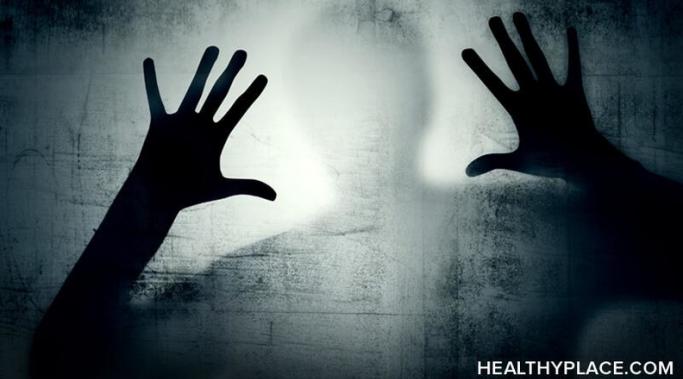Blogs
ADHD runs in families. It is a genetic disorder and a family affair. If you are an adult with ADHD, it is highly likely that another relative of yours will have ADHD. For many adults, this other someone is a grandchild.
There is a persistent myth that having bipolar disorder means you have a “broken identity,” or even, “split personality.” I would imagine the term “manic depression” (an older term for bipolar disorder) conjures up these images for some people. But I’m here to tell you, my identity is just fine as is my personality.
Because I was diagnosed with bipolar disorder at a very young age, a whopping twelve years old, I have a hard time remembering a life before the diagnosis—before I was told, “Natalie, you have Bipolar Disorder.” The only thing I understood was that I missed the Halloween dance at school; that I was sick and tired of being sick and tired.
But I remember being a little girl. A little girl who did not take medication. I remember long nights when I could not sleep; even longer days when I was crazed and manic. I recall my mother’s eyes, frightened, and my father's hands hugging me, telling me to calm down. That I would be okay. I can visualize in flashes my siblings; younger than I. Talking to them from the hospital.
But it ends there. Life after the diagnosis has captured the rest of my life. At the age of twenty-six, the word ‘after’ lingers.
In years past, I was a yes person. Whenever I was asked to take on a new project, help contribute to something, be part of an event, I would say yes without thinking. I had no idea there was any issue in this. This seemed in stark contrast to early addiction recovery. When in early sobriety, I was able to take care of me, and make things simple. I knew what I needed to do, whether it was to go to meetings, see my therapist, get enough sleep, not go out on weekends, surround myself by supportive people, etc.
On Friday, my psychiatrist told me that a fellow eating disorders patient recently died.
To say I was stunned would be an understatement.
In The Screwtape Letters, C.S. Lewis wrote
There are two equal and opposite errors into which our race can fall about the devils. One is to disbelieve in their existence. The other is to believe, and feel an excessive and unhealthy interest in them.
Sometimes religious people can fall into the latter category, seeing demons behind every coffee cup--especially when it comes to demons of mental illness in general and borderline personality disorder (BPD) in particular.
Let's pull out the good old thesaurus to attempt to define a feeling that is so prominent when you are diagnosed with mental illness:
> Singleness
>Alienation
>Isolation
Now, I usually pepper these definitions with a large amount of sarcasm because, usually, they are bloody ridiculous. Having said this, the above definitions make sense on my end. Mental Illness has alienated me, isolated me, and made me feel singular--not the same as others. That's what I want to explore in this blog: mental illness can make us feel terribly lonely and in order to recover we need to work to understand that while mental illness can make us feel isolated, we can move past it.
Mental Illness is a Lonely Disease
Last night I drank.
Alcohol.
OK. You probably don't need to alert the media. But I do need to alert you about the horrible effects alcohol can have on a person with bipolar disorder.
My ex-husband expertly diverted many of our arguments by accusing me of mishandling my baggage. Two examples spring to mind:
I did not ever deal with the rapes, and therefore I hated men and he couldn't talk to me,
I idolized my mother and her decision to leave my dad (for another man, in his opinion), and therefore I was not committed to our marriage and he couldn't talk to me.
Back in the day, hearing these statements led me directly into self-examination or defiance. If I told him I would think about what he said (self-exam), then I only considered his take on the matter (Do I hate men? Am I unsure of my commitment?). Of course, immediate defiance put me squarely in a defensive position, directing the argument into a series of "You always" and"You never" statements that escalated and diverted the argument from the actual topic.
If you've read my previous posts about my son, Bob's first inpatient psychiatric hospitalization at the age of 6, you may understand my mixed emotions surrounding his release after only six days. On one hand, I was happy to have my boy home, and to no longer be under the scrutiny of the hospital staff. On the other, I couldn't help but think six days was a very short time to turn Bob into a "normal," functional kindergarten student.










I believe she will only be able to rid herself of her demons, and hopefully her BPD as well, when she's ready to confront the abuse of her father. If she can put the blame where it belongs, she may stop projecting that victim/perpetrator cycle on the present men in her life. These demons are a metaphor for the purgatory she has created for herself. That reality has consequences in the real world, but it need not be real in the tangible sense. Exorcising her demons will require the expenditure of real physical energy and probably the destruction of aspects of her personality. If this ever happens, and it's possible but not probable, then these demons will evaporate. They are only as real as one's personality is real. In short, reality is not the question, it's what you make of the things you feel to be real.